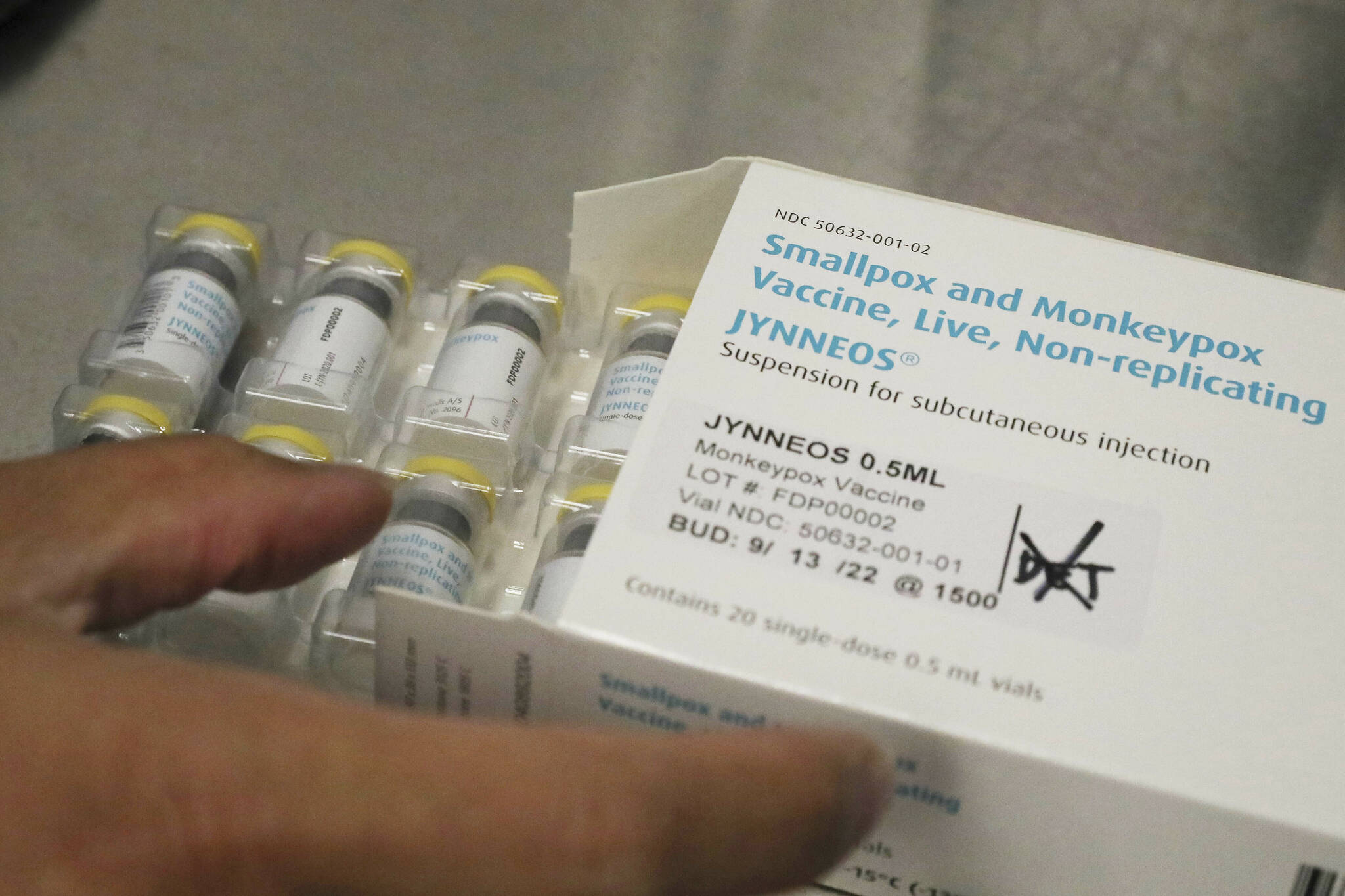An epidemiology bulletin released by the State Department of Health on Wednesday provides a summary of Alaska’s public health response to the 2022 outbreak of the mpox virus, as well as updated recommendations in the aftermath of an end to the federal public health emergency in January.
According to the bulletin, only five probable or confirmed cases of mpox were detected in the state to date. The first was identified July 28. The bulletin says that every case occurred from July to September.
By the end of the year, 141 people were tested for mpox in Alaska, for a positivity rate of 3.6%. The majority of those tests, 99 total for 70%, occurred in August and September. Only three tests were administered in December.
Mpox symptoms include a rash that may open up before scabbing over and resolving, the bulletin says. The disease is spread primarily by direct contact with the lesions of an infected person.
In response to the outbreak, the Division of Public Health released educational resources, performed tests and contact tracing, pre-positioned treatment courses around the state, and distributed the JYNNEOS vaccine statewide, the bulletin says.
By the end of December, 694 first doses of the vaccine were administered statewide, and 485 had received the “recommended” second dose, the bulletin says. Around 84% of the doses were administered to men, and around 73% were located in Anchorage or the Matanuska-Susitna region.
Though the national incidence of mpox peaked in August and the federal public health emergency ended in January, the bulletin says the department continues to monitor trends and will continue to facilitate access to testing, treatment and vaccination.
Current guidance in regards to mpox is to be aware of new or unexplained lesions on the body, and to discuss those and other recent illnesses with sexual partners. Those who identify as being at increased risk for mpox should complete a two-dose series of JYNNEOS. Avoid sharing towels, clothing, bedding or any other items with someone who is infected.
Those who think that they have been exposed or who have new or unexplained lesions should consult with a health care provider.
For more information about mpox in Alaska, visit health.alaska.gov.
Reach reporter Jake Dye at jacob.dye@peninsulaclarion.com.


